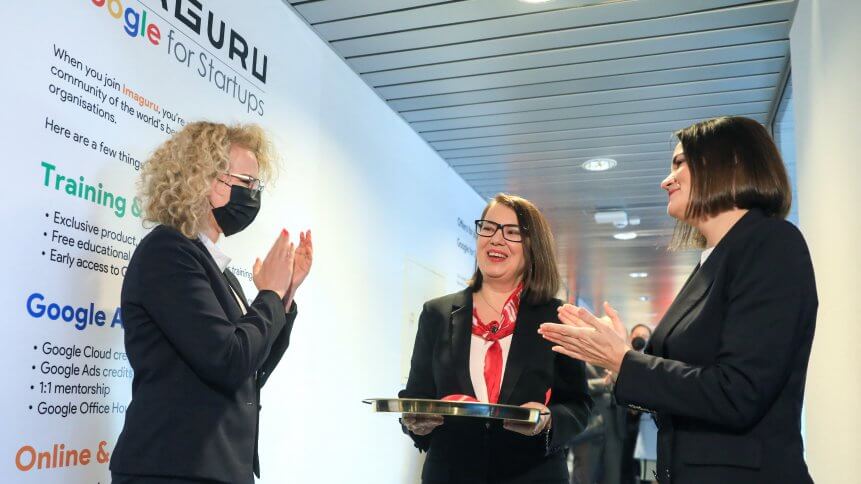Nearshoring: between offshore and in-house software development

Amid the Great Resignation, many companies are struggling to source and employ good quality software developers. It’s very much a seller’s market for anyone with the right qualifications and more than an ounce of experience. But for developers, neither money nor opportunities are lacking.
Hiring developers on permanent contracts is difficult, more so than finding and contracting freelancers for a team, and while both styles of filling the gaps in the workforce are expensive, using freelancers on short-term (or even per day) contracts, is eye-wateringly pricey. Increasingly, companies look to far-flung areas of the world, scouting for skilled individuals located in countries where the cost of living is low, with those costs reflected in lower hourly rates than domestic personnel.
Not to be confused with nearshoring, offshoring is certainly a great deal cheaper for US and European countries than employing locals on a pure salary basis, but it comes with its own problems — primarily timezones and language. Live scrums and real-time collaboration suffer when scheduled at odd hours, and while English is the language of technology, there are often occasions where subtleties in discussions between both parties can get lost in translation.
There is, however, a variation on the offshoring theme especially popular in Europe — where just an hour or two away, in timezone terms, are countries that offer well-qualified and highly-skilled staff who get paid very good money for their skillsets — yet who charge less than their colleagues in, say, the UK and Germany. Often called nearshoring, post-communist East-European countries have invested heavily in training new generations of the population, improving digital infrastructure, ensuring foreign language training is on point, and making sure there are few barriers to cross-border commerce.
For instance, Lithuania, Romania, Moldova, and Estonia couldn’t be pointed out on a map by many in the US and UK, but woeful ignorance aside, these countries easily rival some of the better-established tech hubs elsewhere in terms of access to a trained and dynamic workforce, fast connectivity, and lively communities of technologists, developers, researchers, and businesses. The list of California high-fliers and successful startups that have emanated from Talinn, Estonia alone is impressive.
Plus, these well-versed and eminently able workforces come with the advantage of being (to Western Europeans) only an hour or two ahead or a short, cheap flight away (subject to local virus outbreaks, etc.). And that is the nearshoring advantage, if one can find it and afford it.
From Tech HQ in Bristol, UK, we reached out to Amdaris, a company whose offices are so close to our editorial desks that “a stone’s throw away” is the literal truth. It’s a company started by a local one-time web developer turned entrepreneur and his business partner, a Moldova import. Andy Rogers and Vlad Nanu started Amdaris in 2007 and have quickly found success with a string of well-placed, household name clients on its order books.
Amaris helps companies develop the technologies they need to run their businesses better – developing apps for mobile, applications and services that run in the cloud, bespoke desktop software, and much more. Does that mean the company ends up supporting hundreds of different apps, therefore, if every instance is bespoke? “Yes, and that’s fine. That’s our job,” said Vlad. “Another thing which is very important is everything we build is not ours – we are building on behalf of our customers, so it’s like, we will build a house, but somebody else will live in the house. But once in a while, we are invited to go do some modifications.”
In addition to bespoke software, Amdaris is also often asked to add elements to existing solutions, like extra modules to an existing ERP system, or extensions to HR software. Often, the company is asked to pick up the pieces of projects started by Amdaris’s competitors after (presumably expensive) project failures. “We’ve managed to pick up multiple projects from various regions around the world, from India, from the UK, and from America,” Andy said. Amdaris’s approach melds clients’ business processes with the software in use:
“We’re not competing with simple software offerings, we’re actually looking at how we improve the business. Businesses’ competitive advantages improve as a business will be better off and more efficient by having a bespoke system. And this is where we come in. […] If [companies] are not hiring software developers in-house, they’re trying to find a partner to work on the problems that the business faces and those problems are usually software-based product problems.”
YOU MIGHT LIKE

The Log4j lesson for open-source users
By the end of 2021, the company’s role call numbered over 500, with personnel based in Moldova, Ukraine, Romania, the UK, and most recently, Bulgaria. Bristol in the UK remains the focus for that aspect of any software project often ignored during development, and one that coding engineers rarely excel at: interface and user experience design. Amaris currently employs over 40 Bristolians working solely on UX — an understandable investment given that historically, many technology solutions simply end up unused because they are horrible to work with.
Vlad and Andy are keen to allow the company’s nearshoring centers to develop independently of one another (and the Bristol HQ) with a healthy degree of autonomy. Skills and areas tend to fall into patterns, however. Vlad said, “Each center is equipped with faces [who have] defined sets of skills. Each center can recruit and train, and can build relationships. So some aspects of our business are done centrally from Bristol, [but] we also do empower each center individually, and we’re giving them all the tools they need to operate independently.”
At a time when it’s extremely difficult to recruit more than a couple of decent developers, never mind creating a cohesively skilled team, Amdaris may have found a formula that works well. Across their various teams they cover just about every coding language, framework and associated technology out there from C to Rust, AI algorithms to Xamarin tooling.
Successful nearshoring is balancing in-house skills, outsourced expertise, and business-focused processes. Finding all three in the required ratios is hard, but easier than manually sifting through LinkedIn for individuals one at a time. Using companies like Amdaris presents organizations with ready-made teams for bespoke solutions.









